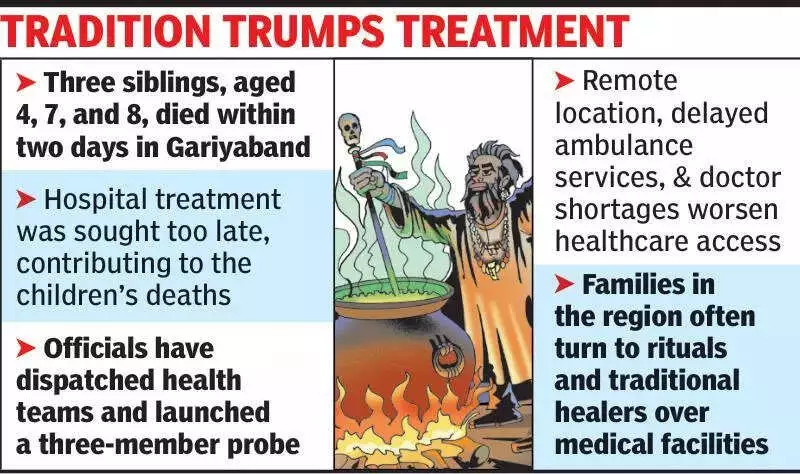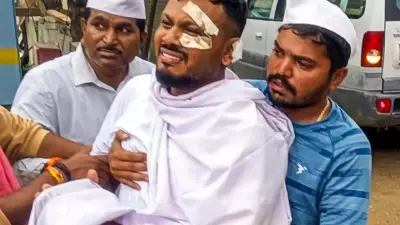
Three Young Lives Lost to Superstition and Delayed Care
A heart-wrenching incident in the tribal heartland of Chhattisgarh has resulted in the deaths of three young siblings, highlighting a critical crisis in rural healthcare access. The tragedy unfolded in Dhanora village, Manpur block, Gariyaband district, on November 13 and 14, claiming the lives of 8-year-old Anita Nagesh, 7-year-old Ekram Nagesh, and 4-year-old Gorashwar Nagesh.
A Cascade of Tragic Decisions
The children, belonging to a family of labourers, had travelled to an interior village when they all developed a fever. Instead of seeking modern medical help, their parents, Damrudhar Nagesh and his wife, consulted a local quack and turned to a baiga (a witch doctor) for faith healing, a practice locally known as "jhad-phunk".
The condition of the eldest daughter, Anita, worsened first. Her parents took her to a temple on a hill, where she tragically succumbed to her illness. By the next morning, her brother Ekram's health also deteriorated, showing fever and cold symptoms. The family again sought the help of the traditional healer. Only when his situation became critical did they rush him to the Amli Padar hospital, but he was declared dead on arrival. The youngest child, Gorashwar, died later the same evening.
Aftermath and Official Response
The back-to-back deaths of their three children left the parents devastated. Overwhelmed with grief and fearing the media and health teams gathering at their home, the couple vanished from the village. Relatives attending to visitors confirmed the children had been buried and the parents had gone to an unknown location.
Dr. Navratan, the chief medical officer, stated that superstition and lack of awareness are rampant in the region, with many families preferring temples, baigas, and quacks over qualified doctors. He also mentioned that village panchayat representatives often receive written assurances from such families stating their preference for traditional healers over hospital care.
In response, the health department has taken several actions:
- Ordered a thorough inquiry into the matter.
- Constituted a three-member probe team dispatched to Dhanora village.
- Launched health camps to check if other villagers are suffering from similar ailments.
Underlying Systemic Issues
Villagers and frontline health workers, like Mitanin (community health worker) Kumari Kamta Nagesh, pointed to deeper, systemic problems that push families toward faith healers. These include:
- Long distances to the nearest health facility.
- Significant delays in ambulance services.
- Periodic unavailability of doctors at rural healthcare centres.
Health officials have urged residents to seek prompt medical attention for high fevers and other serious symptoms, emphasizing the dangers of relying on unqualified practitioners. The findings of the probe team will be shared publicly once the investigation is complete.





